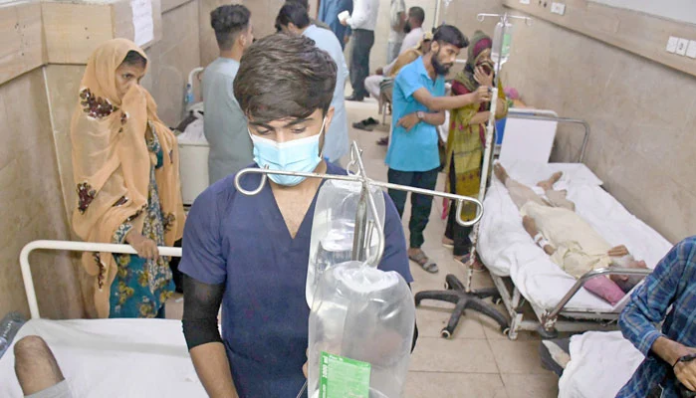KARACHI, OCT 14 (DNA) : Vector-borne diseases such as dengue, malaria, chikungunya and other viral infections have led to an increased number of patients across the city’s hospitals.
At least 50 patients daily, as per medical experts, are arriving at the Jinnah Postgraduate Medical Center (JPMC) and Civil Hospital complaining of cold, fever and body ache with cases suspected of dengue, malaria, chikungunya and other viral infections.
According to the Sindh Health Department, at least 411 suspected cases of chikungunya were reported in Sindh with 153 among those were confirmed after diagnosis.
At least 1,724 cases of dengue were reported in Sindh this year of which 1,484 were documented in Karachi alone. One death due to dengue fever was also reported in Sindh this year.
The health department stated that at least 2,22,239 cases of malaria were reported in Sindh this year with 1,768 diagnosed in Karachi.
Cases of chikungunya, too, have been on the rise in the city with several patients flocking to hospitals and doctors with the infection’s symptoms.
however, learnt from sources that chikungunya testing kits were not available in government hospitals as number of cases skyrocket across medical centres.
When asked about the symptoms of the viral infections, Agha Khan Hospital family physician Dr Bilal Aheed told Geo.tv people experiencing high-grade fever, body aches, joint pain, and swelling or redness on the skin.
“These symptoms are often linked to viral fevers such as dengue and chikungunya, which are spread by a type of mosquito called Aedes.
Specifically, Aedes aegypti and Aedes albopictus mosquitoes are responsible for transmitting these viruses, he added.
According to the family physician, these mosquitoes thrive in urban areas and breed in stagnant water, such as open containers, puddles, or water tanks.
Preventive measures
The doctor shared the following measures to ensure prevention of the aforementioned diseases:
Eliminate stagnant water around your home.
Keep water containers tightly covered.
Use mosquito repellents and bed nets.
Wear long-sleeved clothing, especially in the early morning and evening hours when mosquitoes are most active.

















